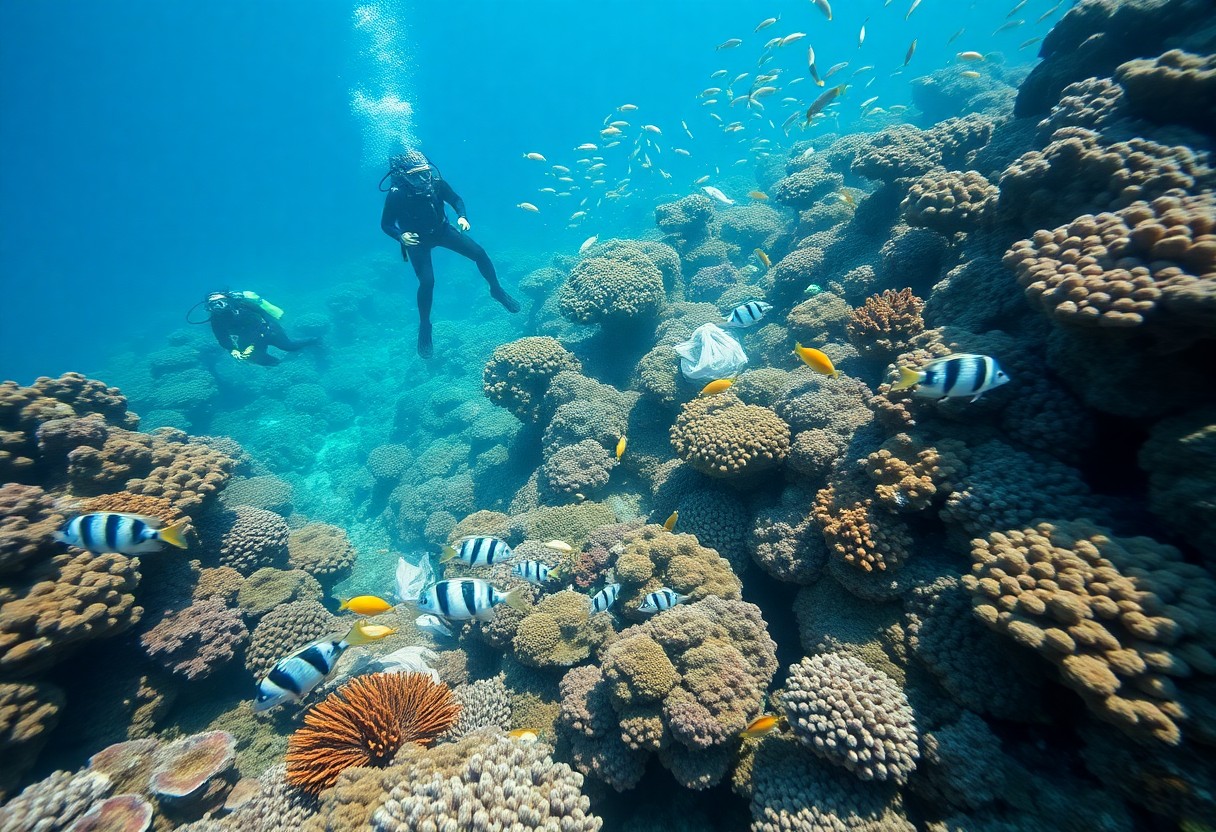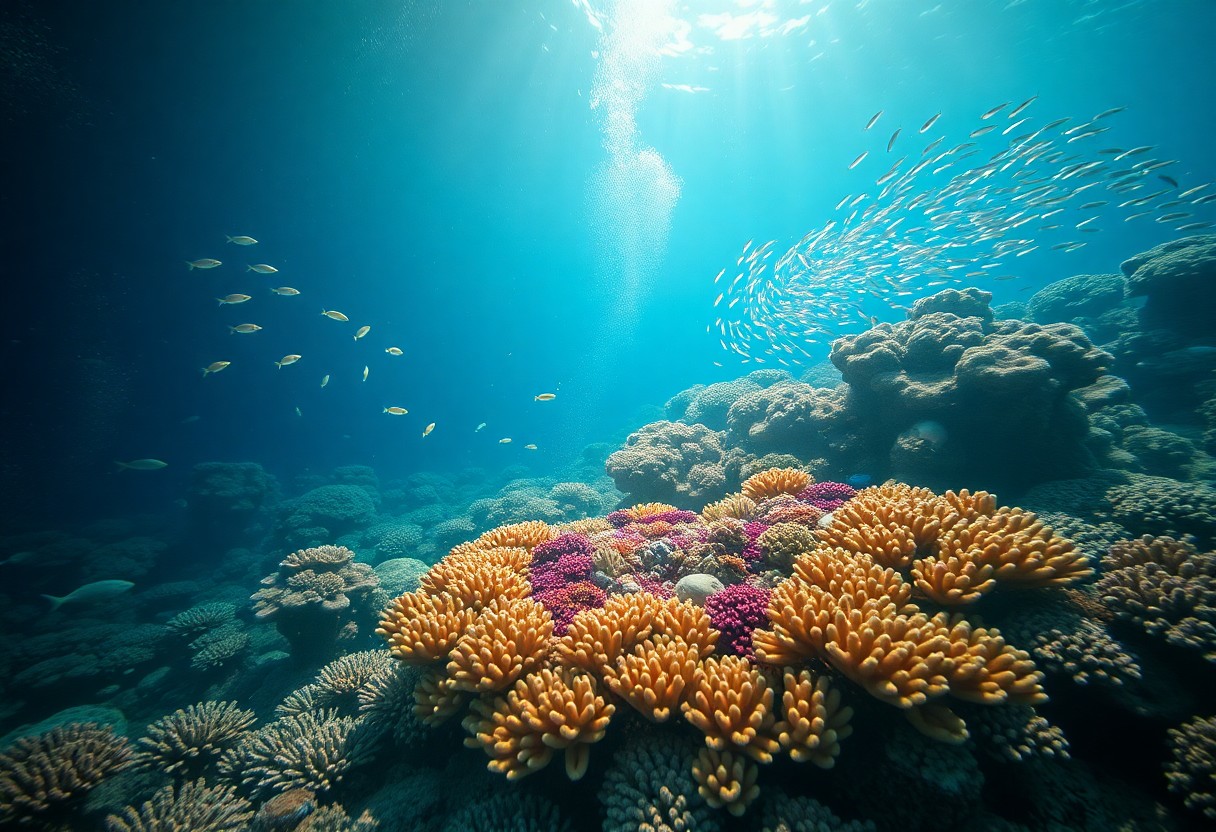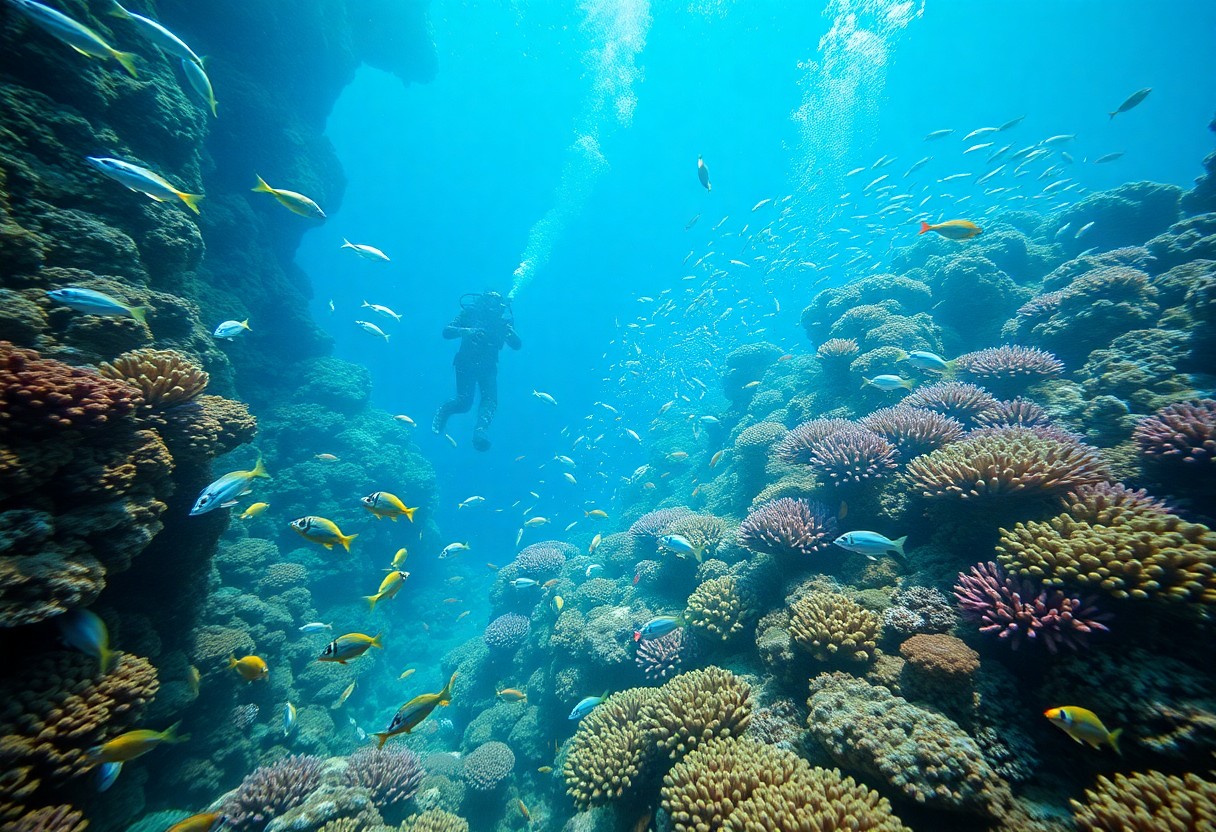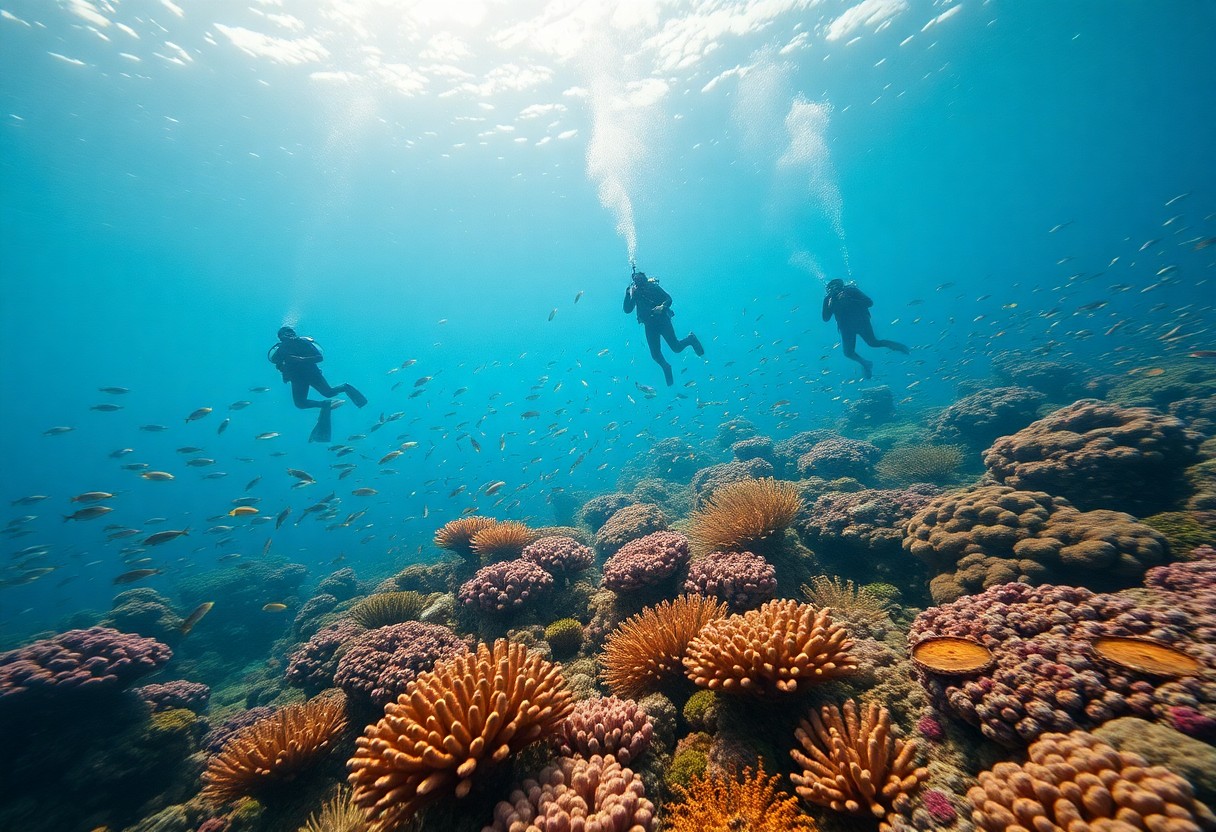It’s crucial to understand how marine conservation areas contribute to minimizing ocean waste and protecting marine ecosystems. By creating designated spaces where human activities are regulated, these areas help reduce pollution, enhance marine biodiversity, and support sustainable practices. You can become an active participant in these efforts by learning more about the steps you can take to support marine conservation efforts through resources like What You Can Do | National Marine Protected Areas Center. Together, we can safeguard our oceans for future generations.

Understanding Marine Conservation Areas
Before delving into the significance of marine conservation areas, it’s important to grasp their role. You can learn more about The Importance of Marine Protected Areas (MPAs), which serve as vital tools in protecting marine ecosystems and promoting biodiversity.
Definition and Objectives
By definition, marine conservation areas are designated zones in oceanic regions that aim to preserve marine biodiversity and restore ecosystem health. Their primary objectives include protecting habitats, sustaining fish populations, and mitigating the impacts of human activities.
Importance in Marine Ecosystem Management
An effective strategy for marine ecosystem management, marine conservation areas play a pivotal role in preserving biodiversity and minimizing pollution. These dedicated spaces allow you to witness the recovery of marine life, contributing to overall ecosystem resilience.
Further, by limiting activities such as fishing and industrial development, marine conservation areas help reduce anthropogenic stressors on marine ecosystems. This protection fosters a balanced environment crucial for the survival of various species. As you engage with these areas, you’ll find they not only benefit marine life but also enhance your experience of nature, offering a glimpse into the thriving ocean environments we strive to protect.
The Impact of Ocean Waste
You might be surprised to learn that ocean waste poses significant threats to marine ecosystems and human health alike. Plastics, chemicals, and other debris accumulate in our oceans, leading to pollution that disrupts aquatic life and can even enter our food chain. Understanding the impact of these pollutants is vital for fostering healthier oceans and preserving biodiversity.
Sources of Ocean Waste
Impact from various human activities contributes to ocean waste, including industrial discharges, runoff from agricultural practices, and improper waste disposal. Urban areas often contribute significantly due to inadequate waste management systems, leading to plastics, chemicals, and other pollutants flowing directly into waterways. Knowing these sources helps you recognize how individual actions can lead to broader environmental effects.
Consequences on Marine Life and Habitats
Across the world’s oceans, marine ecosystems face dire consequences due to increasing ocean waste. Species become entangled in debris, while others ingest harmful materials mistaking them for food. This not only affects the health of marine animals but also disrupts food webs, ultimately threatening entire ecosystems.
At deeper levels, the consequences extend to habitats such as coral reefs and seabeds, where waste accumulation can smother delicate organisms and reduce biodiversity. Toxic substances can leach into the water, causing long-term health issues for marine species. As you become more aware of these impacts, you can actively engage in conservation efforts and promote cleaner oceans, emphasizing the importance of reducing waste and protecting marine life.
Marine Conservation Areas and Waste Management
Some Marine Conservation Areas (MCAs) serve as vital zones for managing waste in ocean environments. By restricting harmful activities and protecting ecosystems, MCAs reduce pollution and promote the restoration of marine habitats. These areas enable effective waste management practices, ensuring that biodegradable materials have a chance to decompose naturally while minimizing human-generated waste. By implementing and enforcing regulations, you help create cleaner oceans, benefiting marine life and the overall health of your coastal communities.
Strategies for Reducing Waste
Besides establishing protective regulations, there are various strategies employed within MCAs to reduce waste. These include community education and awareness programs, promoting sustainable fishing practices, and implementing waste collection and recycling initiatives. By encouraging local stakeholders to participate actively in these efforts, you can achieve significant waste reduction, fostering environmentally responsible behaviors that benefit both marine ecosystems and local economies.
Success Stories and Case Studies
An increasing number of success stories demonstrate the effectiveness of MCAs in reducing ocean waste. These case studies showcase measurable impacts across different regions, highlighting the benefits to local marine ecosystems:
- Maldives Marine Protected Areas: Reduced plastic debris by 50% within two years through strict regulations and community involvement.
- California’s Marine Protected Areas: Reported a 30% increase in fish populations, leading to less waste and healthier ecosystems.
- Great Barrier Reef Protection Program: Decreased water pollution levels by 40% following the implementation of waste management protocols.
- Oregon Marine Reserves: Increased community engagement led to a 25% drop in litter along coastlines within one year.
Even though these success stories vary by location, they provide important lessons on the power of collaboration and effective management strategies. By analyzing these case studies, you can understand how different approaches to waste reduction are tailored to local contexts, fostering resilience in marine environments. These examples underscore the importance of your engagement and continued efforts in supporting Marine Conservation Areas for a healthier ocean.

The Role of Community Engagement and Education
Keep in mind that effective community engagement and education play significant roles in managing Marine Conservation Areas (MCAs). By promoting understanding through educational initiatives and outreach, you can inspire active participation in conservation efforts and foster a sense of ownership of marine environments. For further insights, explore The Benefits of Marine Protected Areas to see how community awareness can lead to meaningful change.
Raising Awareness
Awareness about the impact of ocean waste can motivate individuals to advocate for sustainable practices. Educational programs, workshops, and informational campaigns can inform you about the connection between marine conservation and waste reduction, ultimately promoting better stewardship of our oceans.
Community Involvement in Conservation Efforts
Community-led initiatives can greatly enhance conservation efforts and reduce ocean waste. When you participate in local beach clean-ups or advocate for responsible waste management practices, your actions contribute to protecting marine habitats.
At the heart of effective community involvement lies the power of collaboration. Various organizations and local groups often offer opportunities for you to engage in conservation activities, like monitoring coastal ecosystems or participating in citizen science projects. By getting involved, you not only contribute to reducing ocean waste but also connect with others who share your passion for preserving marine life. Your participation can inspire collective action and drive positive changes in local policies regarding waste management and environmental protection.
Policy and Governance
After understanding the importance of Marine Conservation Areas (MCAs), it’s important to explore the policy and governance frameworks that support their effectiveness. Effective governance involves a combination of local, regional, and national policies that outline the management and protection of marine ecosystems. By establishing clear regulations and guidelines, governments can ensure that MCAs operate efficiently, ultimately contributing to minimizing ocean waste and fostering sustainable marine environments.
Regulatory Frameworks
By creating robust regulatory frameworks, you help establish guidelines that limit pollution and manage waste within Marine Conservation Areas. These frameworks play a vital role in defining regulations related to waste disposal, habitat protection, and resource management, which are necessary for reducing environmental impact.
International Cooperation on Marine Conservation
The resilience of marine ecosystems relies significantly on international cooperation among nations regarding marine conservation efforts. By fostering partnerships, you can promote shared responsibilities and collective actions important for combating ocean waste across borders.
Due to the transboundary nature of ocean waste, cooperation becomes necessary to address this global challenge. Countries can collaborate through international agreements and treaties that set common standards for waste management and conservation practices. This joint approach encourages sharing research, resources, and successful strategies, enabling you and other stakeholders to work together for the protection of marine environments. Engaging in international forums also allows for the development of innovative solutions, enhancing the resilience of our oceans and ensuring sustainable blue economies.

The Future of Marine Conservation Areas
For the future of marine conservation areas to be effective, it is vital to integrate innovative management strategies and community involvement. As ocean health continues to deteriorate, these areas will need to adopt adaptive approaches that address emerging threats while fostering marine biodiversity. Collaborative efforts among governments, non-governmental organizations, and local communities will play a vital role in sustaining these protected zones and reducing ocean waste.
Emerging Trends and Challenges
Any discussion about the future of marine conservation areas must consider the emerging trends and challenges they face. You will find that climate change impacts, overfishing, and pollution remain significant obstacles, requiring adaptive strategies to ensure the regions thrive amid evolving environmental conditions.
Innovations in Waste Reduction Strategies
Any successful future for marine conservation areas hinges on innovative waste reduction strategies that you can support and implement. By embracing cutting-edge technologies, sustainable practices, and community-oriented solutions, you contribute to the overall health of marine ecosystems and help combat ocean waste.
The shift towards innovative waste reduction strategies involves utilizing technologies such as biodegradable materials, waste-to-energy processes, and advanced recycling methods. You can also explore community engagement initiatives that promote responsible behavior, such as beach clean-ups and educational programs. These actions not only contribute to cleaner oceans but also inspire greater awareness of the importance of conserving marine environments. Together, these innovations empower you and your community to take an active role in protecting our oceans from waste pollution.
1. Marine conservation areas promote healthy ecosystems and biodiversity.
2. They reduce human activities that contribute to ocean waste.
3. Marine protected zones enhance waste management practices locally.
4. They support research on pollution and sustainable solutions.
5. Conservation areas empower communities to engage in stewardship.
6. They foster awareness about marine waste and environmental impact.
Final Words
To wrap up, understanding the role of Marine Conservation Areas in reducing ocean waste is vital for you as a steward of the environment. These protected regions enhance biodiversity, create sustainable habitats, and mitigate the impact of pollution. By supporting these initiatives, you contribute to cleaner oceans and healthier ecosystems. Your actions—whether advocacy, education, or responsible waste management—play a part in preserving marine life and reducing waste. Engaging with these areas empowers you to be an active participant in a global movement toward ocean conservation.



